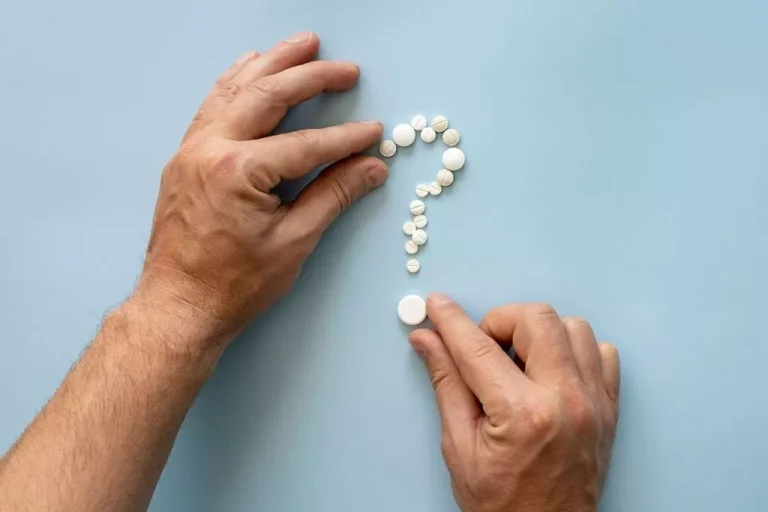Addiction vs dependence: Vital distinctions

Family members may label a person battling substance misuse as “dependent” or “addicted” to drugs. But are addiction vs dependence equivalent? These are two distinct diseases linked to substance consumption. But because the terms are similar, the tendency to use them interchangeably develops. We are going to discover how these two terms vary and figure out the difference between addiction and dependence in more detail in this article.
Understanding the meaning of addiction
A specific pattern of behavior known as addiction is defined as an unquenchable, rising need for a particular sensation or experience. In theory, anyone may develop an addiction. Any type of human behavior, such as workaholism, gambling, and overeating, can become addictive because addiction is not just a problem with specific substances. All addictions emerge through a cycle of abuse, repetition, habituation, and experience.

Take back control of your life and start on the road to recovery now.
Primary stages
To understand the difference between addiction vs dependence, it is vital to figure out the stages of substance addiction. It often involves three phases:
- Initial exposure to the intoxicant, a satisfying experience (either by eliciting pleasurable emotions or removing unpleasant ones), and the ability to stop.
- The crucial stage is becoming used to compulsive and avoidant behaviors toward the surroundings.
- Chronic phase: drug dependence vs addiction results in a complete loss of control and a desire but an inability to escape.
The third (chronic) phase is when consumption becomes a compulsion and actually becomes a strong addiction. At this stage, the actual suffering of the condition becomes apparent: a person can no longer live without the substances to which one is addicted. They may want to quit it, but they just can’t.
What is drug dependence?
Drug dependence is when the body or brain has become so used to a substance that stopping use suddenly causes unpleasant adverse effects. Withdrawal is the term for this. It is characterized by physiological and psychological symptoms resulting from the body’s systems operating improperly. There must be a time of adjustment following removing the substance from the body. When individuals discuss addiction, they often mean the negative actions linked to substance usage. The term “dependence” in relation to the difference between addiction vs dependence describes the physical signs of tolerance and withdrawal.
The types of dependence
There are differences among the various forms of dependence. The physiological methods in which the body adjusts to the presence of a drug are discussed in terms of physical dependency.
People have psychological dependency when they depend on a substance to carry out certain activities or to make them feel a particular way when there are intense, emotion-driven cravings, and probably when they give the substance too much consideration. Without the drug, one is likely to experience worry or other unfavorable feelings, which may make them unable to complete a task.

Dependency criteria
The word dependence has taken the role of the highly general term addiction when referring to substance addictions. Three out of the seven criteria for dependency must be satisfied to diagnose the state:
- strong urge to consume alcohol or drug;
- having trouble sticking to decisions on the quantity, kind, and frequency of substance use (poor control);
- physical discomfort that comes with cutting back or ending use (withdrawal symptoms);
- increased use without strengthening the drug’s effects (tolerance development);
- consumption patterns that are becoming more homogeneous (narrow consumption pattern);
- neglect of other pursuits, including family, hobbies, friends, and employment;
- continuing to consume while being aware of the harm already done to one’s body, mind, or society.
The concept is notable because dependence need not to meet all criteria. The question of the status and significance of the addictive drug in the lives of the person afflicted, in their ideas, feelings, and behaviors, lies at the heart of the definition. The only way the individual in issue can determine whether they are dependent is by honestly and critically answering these questions.
One example to illustrate the difference
Let’s imagine: John, a male, consumes five beers each evening. He relishes his nighttime libation. He claims that it helps him unwind, and he likes how it makes him feel. Due to alcohol’s addictive nature, John ultimately develops a physical need for it. He resolves to break the horrible habit but quickly picks up drinking again. He now consumes 10 to fifteen beers every night and occasionally passes out. His dependency has developed into an alcohol addiction since he wants to stop but cannot.
Substance addiction vs dependence: treatment opportunities
Addiction treatment is an ongoing process typically involving a combination of different approaches. Treatment typically begins with detoxification, which is the process of eliminating drugs and other toxins from the body. During detox, medical professionals will monitor and address any physical or psychological symptoms associated with withdrawal.
After detox, treatment usually includes individual and/or group therapy sessions as well as medication-assisted treatments (MATs). Individual therapy focuses on addressing underlying issues that may have contributed to the addiction, such as mental health disorders or trauma. Group therapy provides emotional support from peers who have experienced similar struggles with drug addiction. MATs involve medications to reduce cravings for drugs and minimize withdrawal symptoms.
Other forms of treatment may include holistic interventions such as yoga or acupuncture; participation in 12-step programs; sober living arrangements; vocational rehabilitation programs; and relapse prevention strategies, including lifestyle changes (diet, exercise) and stress management techniques.

This can be a difficult journey, but you don’t have to go it alone. Let us be your guide and provide you the environment needed to regain control of your life and begin the path to recovery.
Overcome the addiction with Eco Sober Houses
Following each step in the treatment program requires a lot of effort and energy. It must involve not only ridding the body of the effects of toxic substance use, taking prescribed medications, and seeing a psychiatrist as required but also engaging in physiotherapy, psychotherapy, working with family members, and other techniques that have been proven effective in treating patients with addictions of a similar nature.
No amount of medicine will be able to change a person’s attitude toward drugs. It makes the substance abuse vs dependence rehabilitation at Eco Sober Houses crucial. The stage’s tactics and objectives serve to build up one’s resistance to temptation. The client finds a resource for the battle against addiction and becomes more balanced. An individual’s personality is the first component of their life, followed by their family.
The addict keeps working during the resocialization period. At this stage, the person continues to work for recovery and receives individual help through consultations and personal psychotherapy. Every day in Eco Sober Houses they learn to live and be happy without drugs and share their personal experience, thereby helping other addicts.




